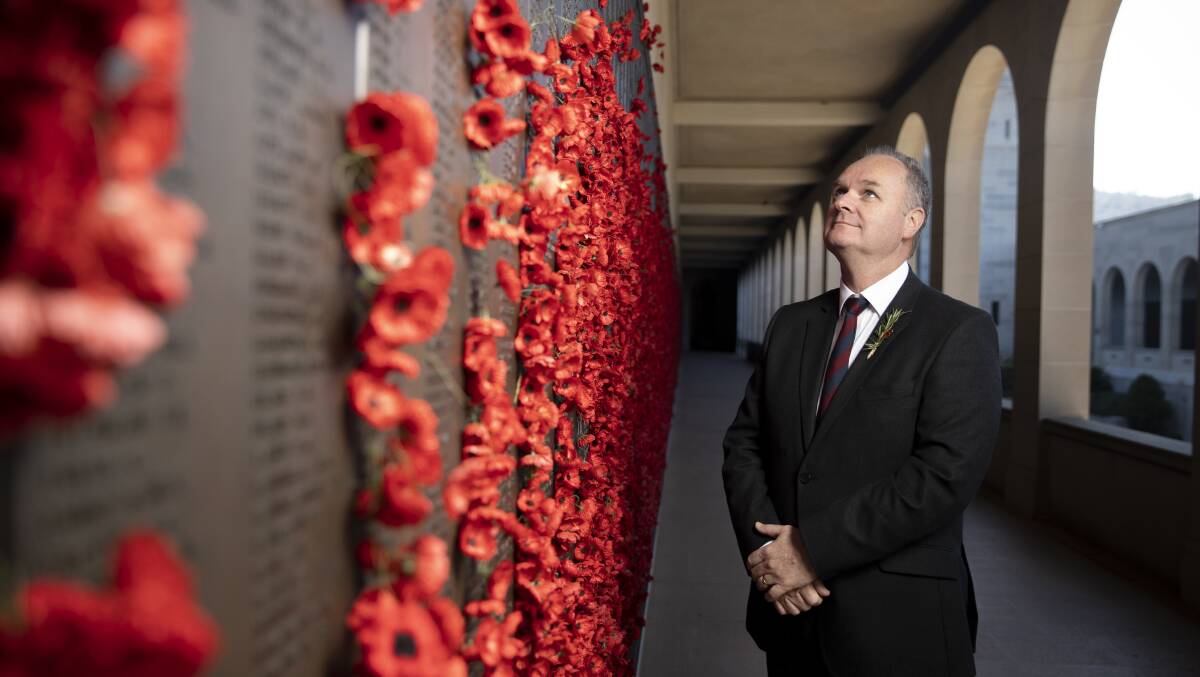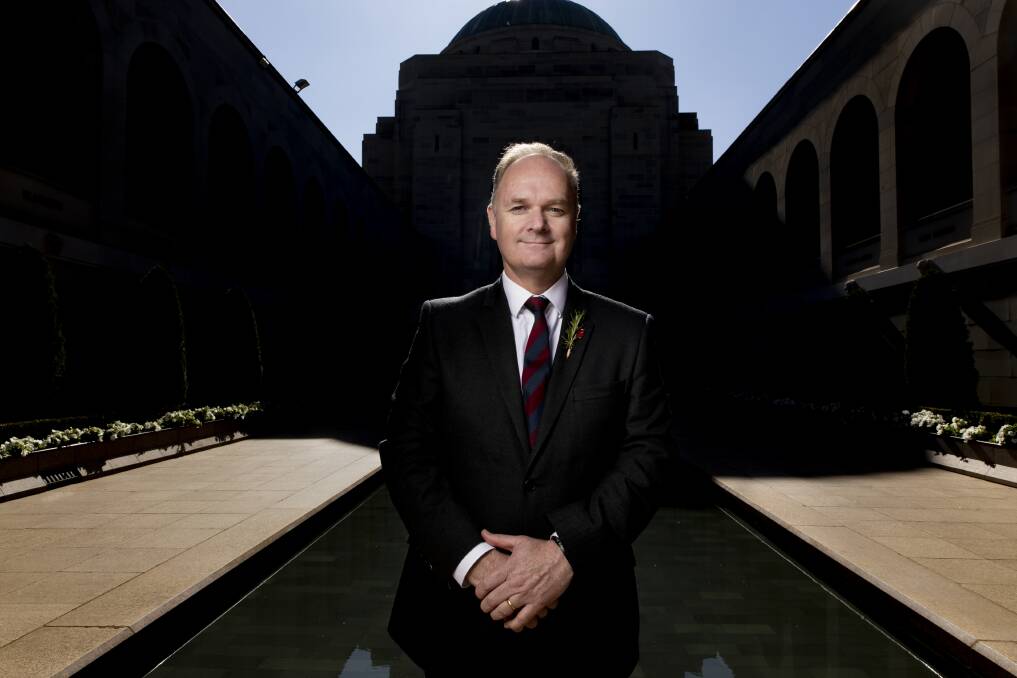As Matt Anderson listened to the last post ring out from the Australian War Memorial, then heard the sulfur crested cockatoos which had come down from Mount Ainsile sing through a moving minute of silence, that was the moment he knew he was home.
Subscribe now for unlimited access.
or signup to continue reading

The new director of the Australian War Memorial has spent years overseas. First as a soldier, then as a diplomat.
He had been in the new role just two weeks before Saturday's Anzac Day commemorations.
"It really was quite striking," he said.
"I just thought, that's not a sound you hear in any of the other postings I've been to.
"You hear it in Canberra, and you hear it at dawn on Anzac Day."
While Canberra's Anzac Day events lacked the crowds of tens of thousands of most other years, Mr Anderson said the memorial wanted to be able to provide stability in uncertain times.
"Anzac Day wasn't cancelled this year. It has always been an intensely personal thing," he said.
"What we were able to do today was to provide an element of continuity in an otherwise pretty changed Australia at the moment.
"By being able to keep the key parts of our dawn service, tie them into a commemorative service, put it in the Australian War Memorial and take them to every home was a very powerful and quite deliberate gesture."

He said he looked forward to going home and seeing how people commemorated the day in their own way.
Mr Anderson's new role as director is somewhat of a homecoming.
He was most recently Australia's deputy high commissioner to the United Kingdom, and was previously he was the head of the Department of Foreign Affairs and Trade's MH17 Taskforce, following the downing of the aircraft in Ukrainian airspace in 2014.
But he is also a graduate of the Royal Military College Duntroon, and spent eight years as an Australian Army Officer, including three years as Troop Commander for the Royal Australian Engineers.
"A lifetime of association with [the Australian War Memorial] from a boy, to a solider, to a diplomat, I've always know that this was Australia's finest institution," he said.
A lifetime of association with the Australian War Memorial from a boy, to a solider, to a diplomat, I've always know that this was Australia's finest institution
- Australian War Memorial director Matt Anderson
"It's more than just a memorial, it is a shrine, it is a memorial, it is a museum and it's a research centre. All of those things combine and make it very interesting - it's beyond interesting to work here."
He said he will focus on ensuring the continued relevance of the war memorial, especially for contemporary defence people and their families
"And I would hope they then visit the war memorial and they can see part of their service reflected here.
"My overwhelming desire will be to ensure the continued relevance of the Australian War Memorial to current and future generations."
Mr Anderson backed the war memorial's at times controversial $500 million redevelopment.
He said he had read detailed briefings and all the stakeholder engagement reports about the project.
He was confident the overwhelming majority of people who were consulted about the project were in favour of it.
"I've thought about the job deeply and I've thought about the redevelopment and I've been fully briefed on it," he said.
"It's terribly, terribly ambitious. But I think at this time when we emerge from the pandemic, and we get construction going again, I think projects like this will be welcomed.
"I'm very excited about it and I don't for a second think that it's going to be achieved easily."
Mr Anderson said the development would rightly place the Australian War Memorial at the centre of why people visit Canberra.
"It will position the Australian War Memorial well for the next 50 to 70 years," he said.
The memorial has faced criticism in the past for accepting donations from weapons manufacturers, with activists arguing accepting funds from companies that profit from war is inappropriate.
But Mr Anderson says he sees no problem with the practice.
"I think we should be encouraging some of the larger contractors that we engage with to be involved in supporting the telling of the story.
"I don't, and would never want them to be involved in this commemorative area .. but that they might support us in our aircraft hall for example makes perfect sense.
READ MORE:
"This place does not glorify war, but I do think they have an obligation and indeed a responsibility in what are pressing times for us all.
"We have to find money both government and from philanthropy and from donors.
And if they're willing to donate I'm certainly open to all sources in terms of helping the Australian War Memorial commemorate all those who have served.


